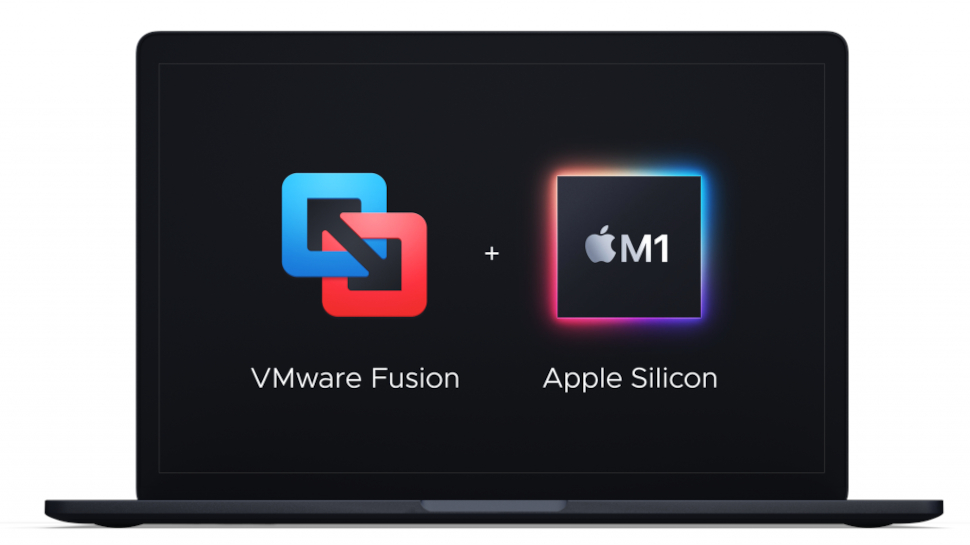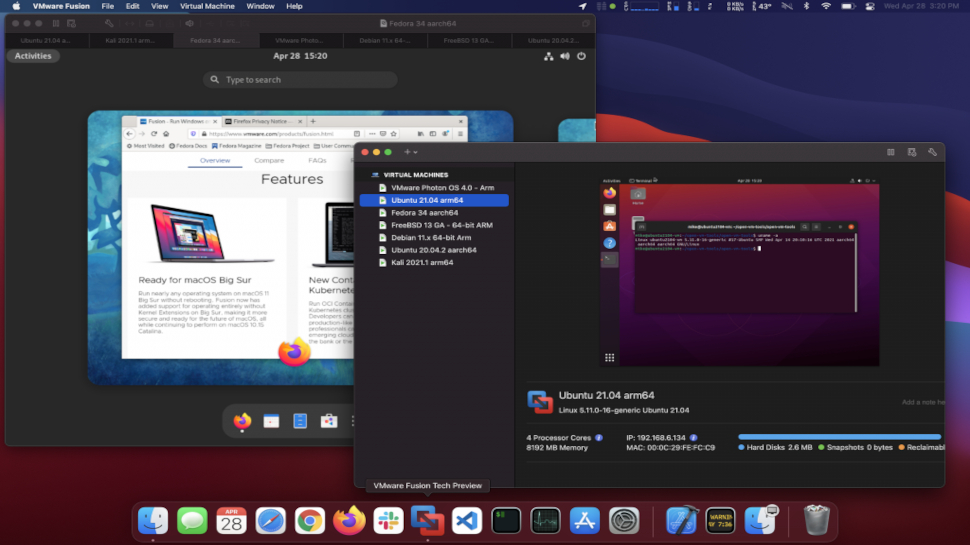VMware isn’t planning to support Windows virtual machines on Apple M1 Macs
VMware pins the blame on Microsoft’s licensing terms for Windows 10 ARM

VMware has said it doesn't plan on supporting Windows virtual machines inside M1 Macs, at least for the time being.
The virtualization giant shared the progress of its VMware Fusion product for the M1 Mac in a blog post this week, adding that it plans on delivering a Public Tech Preview "before the end of this year."
Surprisingly, in the post, VMware reveals that Windows 10 is a second priority behind Linux and for the time being the company is “laser focused” to make Arm Linux VMs on Apple silicon a delight to use.
- These are the best VPS hosting providers
- We've put together a list of the best cloud hosting services
- We’ve also rounded up the best workstations
Water tight licensing
VMware’s stance, the company explains in the post, is related to the licensing terms of the Windows 10 ARM product.
As per VMware’s reading of the licensing terms, insider builds of Windows 10 ARM can only be installed on systems that are powered by a licensed version of Windows 10, which is currently not available on Apple hardware.
Furthermore, the company argues that Microsoft currently does not sell licenses of Windows 10 ARM for virtual machines. Also, while Windows 10 on ARM Insider Preview builds can create ARM64 VMs, they are only supported on certain platforms, and Apple Silicon isn’t one of them.
In essence, as things stand now, VMware contends that Microsoft offers no legitimate means to run Windows 10 ARM on a Mac with Apple silicon.
Are you a pro? Subscribe to our newsletter
Sign up to the TechRadar Pro newsletter to get all the top news, opinion, features and guidance your business needs to succeed!

No x86 support
But what about virtualizing x86 platforms?
VMware says it’s a perfectly logical question, since Apple can emulate x86 with Rosetta 2, and so can VMware.
However, it again shoots down the proposal by saying that the process for supporting the x86 platform requires a lot more engineering effort than the business value the company can derive from such an offering.
“So, to be a bit blunt, running x86 operating systems on Apple silicon is not something we are planning to deliver with this project. Installing Windows or Linux from an x86 ISO, for example, will not work,” concludes Michael Roy, Product Line Manager for VMware's Desktop Hypervisor products.
- Check out our list of the best cloud computing services right now
With almost two decades of writing and reporting on Linux, Mayank Sharma would like everyone to think he’s TechRadar Pro’s expert on the topic. Of course, he’s just as interested in other computing topics, particularly cybersecurity, cloud, containers, and coding.
